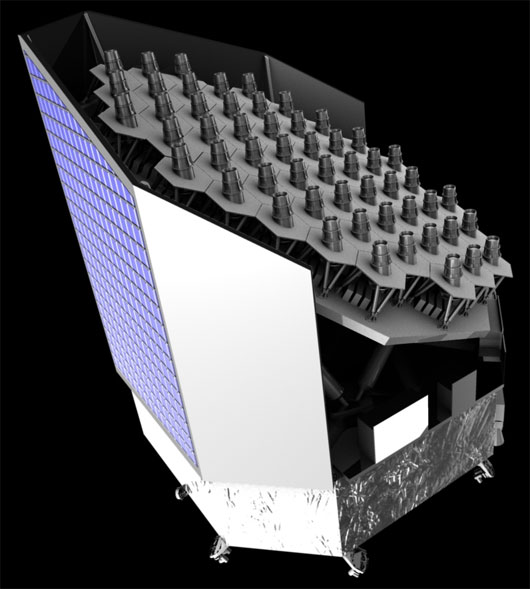Plato's mission to hunt planets
(European warehouse) - The European Space Agency has chosen a telescope to launch into space and discover unknown planets. The telescope Plato will be launched into orbit in Soyuz missiles in 2024.
It is expected that ESA only needs to spend more than 600 million Euro for this project, however, the contribution from member countries has made the figure more than 800 million Euro.
Until now, astronomers have found more than 1,000 planets outside the solar system, in size and distance from the Sun, none of which are similar to Earth. Plato will perform the task of searching for meteors around living planets - where water exists in liquid form.
"Plato will be our first attempt to find planets near it that meet the requirements of life," said Dr Don Pallacco, Warwick University, head of Plato Science Association .
'Nearly all of the small planets passing through satellites to this point are beyond the description of technology, Plato will change that, allowing the discovery of many planets similar to Earth and copper. check the atmosphere and signs of life on it '.
'Plato opens up the opportunity for us to experiment, develop planetary theory and understand the small planets in the universe, as well as the actual frequencies of planets similar to the Earth , ' Dr Pallacco said. .

Plato is not just a telescope, but an observatory with 34 telescopes placed on a single satellite. The goal is to find and observe all the brightest and closest stars.
The observatory will monitor each of the smallest light signals of the stars as it passes through it. An important purpose of this search will also indicate the inner complex structure of stars based on their vibrations and frequencies.
Plato's mission will be directed by Dr. Heike Rauer, of the German Space Agency.
An important contribution of Plato is the camera system right behind its telescope.
Plato combined with a large European terrestrial telescope (E-ELT), consisting of a main mirror with a diameter of up to 39m. This giant mirror will officially operate in 2024, having the power to test the atmosphere of new planets discovered by Plato.
Plato is the third project in ESA's Space Vision program, which defines the priority for spatial organization science.
The first two projects, Solar Orbiter - a space telescope to study the sun, will be launched in 2017, and Euclid - a telescope to investigate 'dark energy' , is expected to orbit. by 2020.
ESA will adjust the final designs of Plato and embark on the construction of this satellite.
Member countries that contribute to the project will agree to all mandatory agreements and commitments. At the same time legal procedures will also be completed within the next 2 years, before preparing Plato to orbit space.
- NASA launched the mission to hunt meteorites in 2019
- America began its mission to find planets like Earth
- Unknown mystery about planets outside the solar system
- Treasure hunt in the
- NASA's meteorite hunt mission failed
- Discover more 18 large planets
- Will hunt aliens for 25 years
- Why are planets spherical, and meteorites?
- 4 surprise behind the super product 'Mission impossible 5'
- NASA is about to make a big decision in hunting down the planet Mars
- Six outstanding space missions are underway
- 8 planets are not true to haunt the scientific world
 Van Allen's belt and evidence that the Apollo 11 mission to the Moon was myth
Van Allen's belt and evidence that the Apollo 11 mission to the Moon was myth The levels of civilization in the universe (Kardashev scale)
The levels of civilization in the universe (Kardashev scale) Today Mars, the sun and the Earth are aligned
Today Mars, the sun and the Earth are aligned The Amazon owner announced a secret plan to build a space base for thousands of people
The Amazon owner announced a secret plan to build a space base for thousands of people